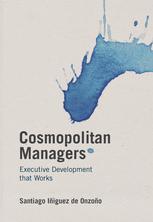

Most ebook files are in PDF format, so you can easily read them using various software such as Foxit Reader or directly on the Google Chrome browser.
Some ebook files are released by publishers in other formats such as .awz, .mobi, .epub, .fb2, etc. You may need to install specific software to read these formats on mobile/PC, such as Calibre.
Please read the tutorial at this link: https://ebookbell.com/faq
We offer FREE conversion to the popular formats you request; however, this may take some time. Therefore, right after payment, please email us, and we will try to provide the service as quickly as possible.
For some exceptional file formats or broken links (if any), please refrain from opening any disputes. Instead, email us first, and we will try to assist within a maximum of 6 hours.
EbookBell Team

4.7
76 reviewsExecutive education is a billion dollar industry that has the potential to transform individual and organizational performance, but in too many cases the decision whether or not to lavish it upon any given manager comes down to whether the fear that they will leave if you don’t spend money on them is greater than the fear that they will leave if you do.
Given that the future of your business, or your career, depends on developing your managerial talent to its fullest potential isn’t it time we took a serious look at how do you design and deliver an executive education program that is fit for purpose?
Santiago Iñiguez is Dean of the prestigious IE Business School in Madrid – one of the world’s leading providers of executive education. From the impact of MOOCs to the evolution of new multi-dimensional strategic alliances between companies and a diverse range of international education suppliers, institutions, and consultancies, Iñiguez looks at how the future of executive education is changing to meet the needs and wants of top managerial talent.
Part of the solution, Iñiguez argues, is to balance the technical, analysis-based “engineering” training that forms the basis of many senior managers’ initial study, with a more rounded, integrated approach that includes learning derived from the humanities, such as art and history.
Illustrated with fascinating examples drawn from interviews with some of the most influential figures in business education and corporate training around the World, Iñiguez’s book delivers a unique perspective and valuable insights on what it takes to deliver world-class corporate training.